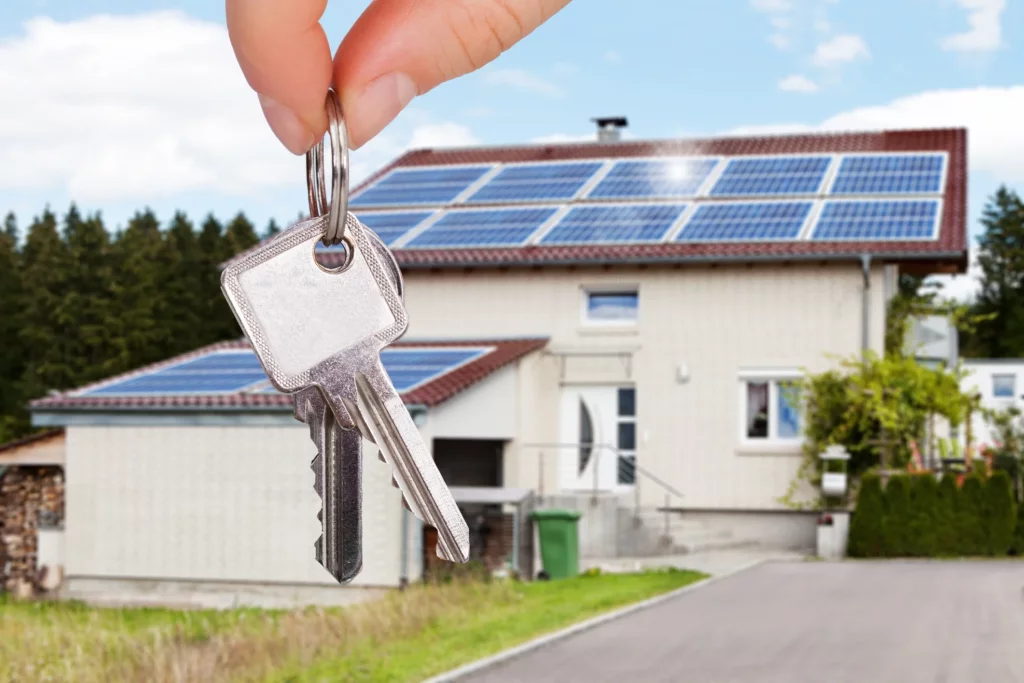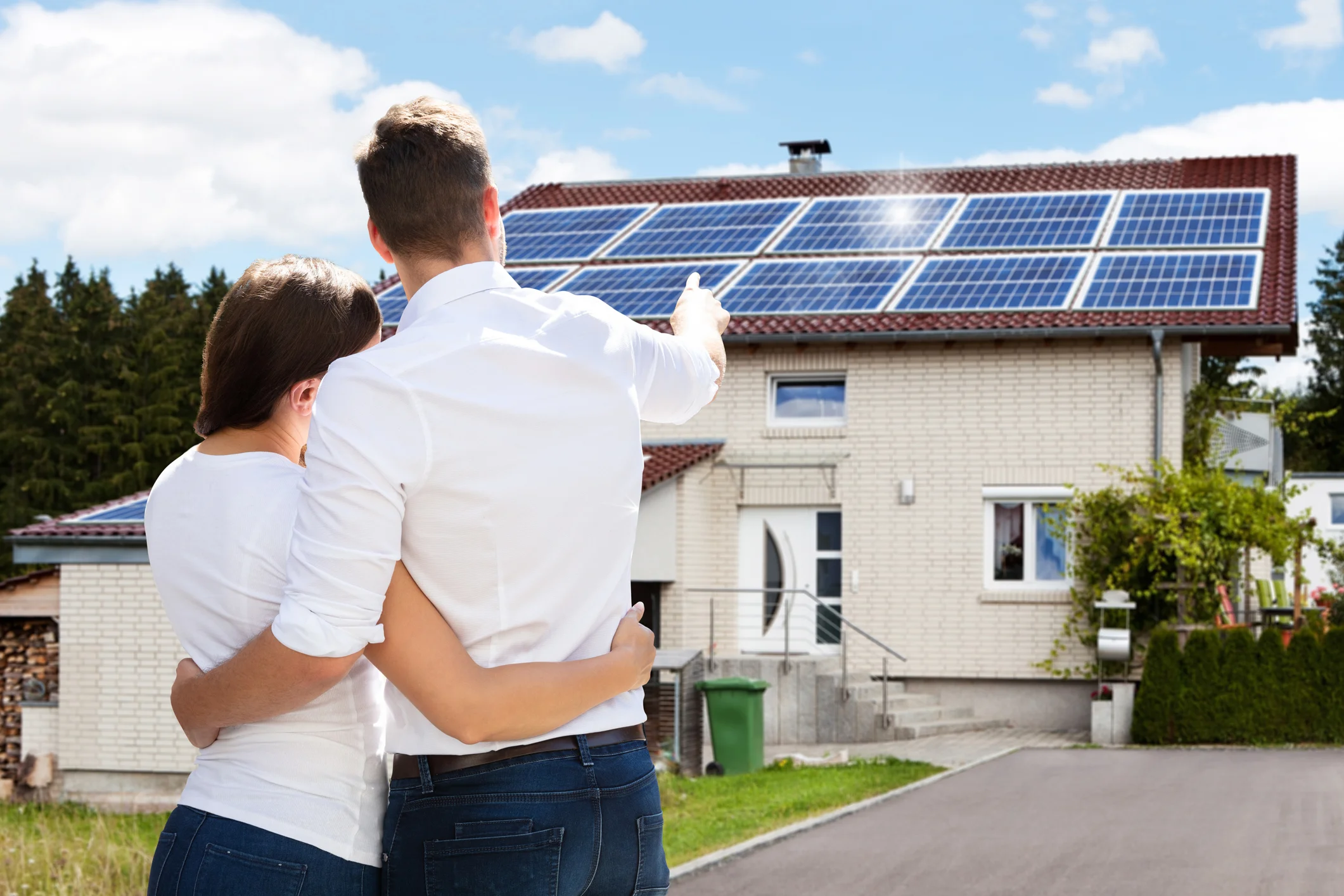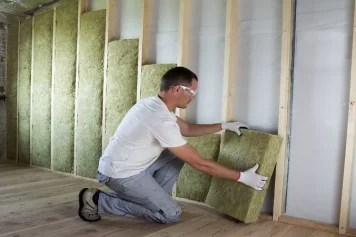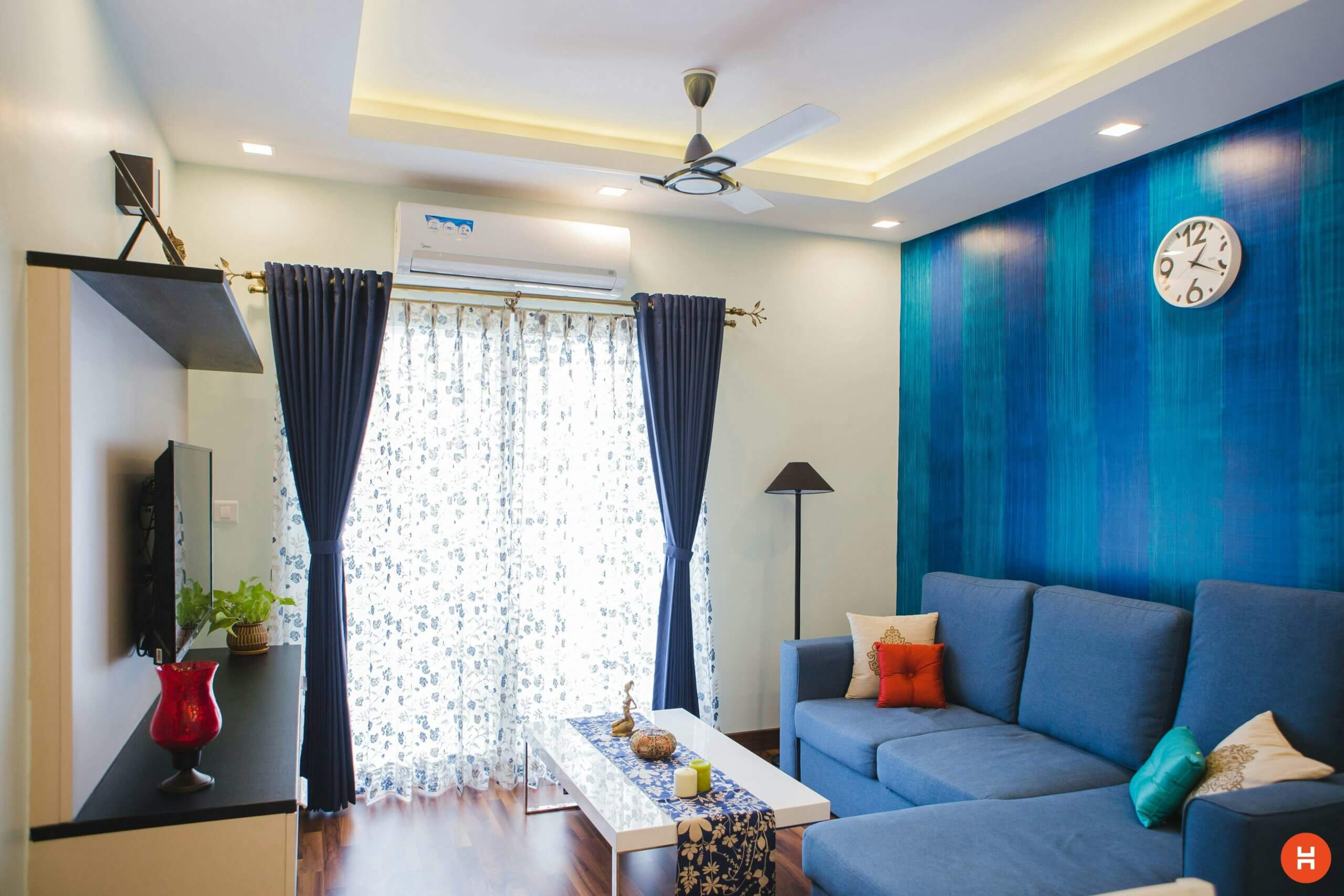Energy renovation transform your home into a comfortable and energy-efficient space. It can significantly reduce your bills while increasing the value of your property. With rising energy costs, these renovations are becoming a priority for many homeowners.
Energy bills are rising. Thermal comfort is deteriorating. Many homeowners are therefore considering energy renovations. This project allows you to reduce your energy consumption. It also adds value to your property. Here, you’ll discover how to reduce your expenses, obtain grants like MaPrimeRénov’, and make your project a success with France Rénov’ .
The cost of a renovation varies depending on the scope of your project. But financial assistance can help ease this cost. MaPrimeRénov’ and the zero-interest eco-loan are available to everyone. They make the work more affordable.
Your process begins with a diagnostic. It identifies the energy weaknesses of your house or apartment. Insulation remains the most cost-effective type of work. It reduces heat loss through walls and roofs.
The cost of an energy renovation quickly pays for itself. Your savings on bills offset the initial investment. Additionally, your property’s value increases on the real estate market.
To ensure your renovation project is a success, call on qualified professionals. RGE tradespeople guarantee work that complies with current standards. You can also consult our design and architecture experts for personalized support.
Estimating the cost of the work before purchasing helps you avoid unpleasant surprises. A detailed quote details each project and its price. This transparency facilitates your decision-making. It also allows you to compare offers.
Renovations also improve your daily comfort. No more drafts and poorly heated rooms. Your home becomes pleasant all year round. And your carbon footprint is significantly reduced.
Understanding energy renovation for your home
What is energy renovation ?
Energy renovations include work that reduces energy consumption. They improve the thermal comfort of your home. These renovations limit heat loss. They optimize heating and ventilation. They also reduce the building’s carbon footprint. The goal is to transform an energy-intensive home into an energy-efficient space.
The benefits are numerous. Properly executed renovations can lower your bill by up to 60%. They also contribute to the energy transition. If you’re considering a larger project, check out our guide to renovating your apartment . It also increases the value of your property, making it an asset for a future sale.
Reducing your energy consumption brings multiple benefits to your daily life. Your wallet breathes easier thanks to lower monthly bills. This saved money can be used for other family projects. Your comfort also increases considerably in all rooms. No more cold spots in winter and excessive heat in summer.
Your environmental impact decreases with every kilowatt-hour saved. You reduce your carbon footprint without any additional effort. Your property’s market value increases. Buyers are now looking for energy-efficient homes. Your dependence on fluctuating energy prices is also reduced. You gain peace of mind in the face of global energy crises. Your health also improves in a well-insulated and properly ventilated environment.
The different types of energy renovation work
Energy renovation includes several types of work, each addressing specific needs.
Thermal insulation reduces heat loss. Efficient heating uses renewable energy. Ventilation ensures healthy indoor air. Domestic hot water can use solar energy.
A comprehensive approach yields better results than isolated work. It harmonizes the various systems and avoids problems associated with unbalanced interventions. If your budget is limited, you can plan the work in stages. Each phase should improve energy performance.
Why undertake an energy renovation?
The French are renovating to reduce their energy bills. This expense is becoming increasingly significant. Thermal comfort is also a factor in this choice. In older homes, the temperature varies greatly between rooms. Environmental concerns are also driving homeowners to take action. They want to reduce their ecological impact.
The law strongly encourages housing improvements. The Climate Act is gradually banning the rental of properties classified as F and G. The government is also offering aid to accelerate this transition. Renovating your kitchen can thus become more affordable.
Financial assistance for your energy renovation project
MaPrimeRénov’: the State’s flagship scheme
MaPrimeRénov’ is the government’s main form of assistance to finance your renovations. It varies depending on your income and the energy savings achieved.
MaPrimeRénov’s profile | Income ceiling | Example for wall insulation |
Blue (very modest) | Varies by household | Higher amount |
Yellow (modest) | Threshold above blue | Intermediate amount |
Violet (intermediate) | Threshold above yellow | Lower amount |
Rose (wealthy) | Threshold above purple | Limited eligibility |
In 2025, MaPrimeRénov’ will favor comprehensive renovations. Overall projects will receive more favorable amounts. The program is evolving to maximize the impact of the work. Buildings emit a lot of CO2. This change aims to reduce these emissions.
To request assistance, create an account on the official MaPrimeRénov’ website.

The zero-interest eco-loan and other advantageous loans
The zero-interest eco-loan finances your renovations interest-free. It is available to owner-occupiers and landlords. The property must be more than two years old. You can borrow up to €50,000 depending on your project. Repayment is spread over 15 to 20 years. This eases your household budget. You must use RGE-certified tradespeople.
Other options exist. Advance renovation loans and bank home improvement loans can help.
Local aid and energy saving certificates
Local authorities offer additional assistance. These grants vary by region. In the Île-de-France region, some municipalities offer grants for attic insulation. Contact your town hall or visit the departmental council website to find out about local assistance.
Energy savings certificates (ESCs) are little-known but valuable. This system requires energy suppliers to promote energy efficiency. ESCs result in bonuses for your work. The amount depends on the work and your climate zone. Apply before signing the quote.
The key stages of an energy renovation project
The energy performance diagnosis (DPE)
The DPE (Energy Performance Certificate) is the foundation of any renovation project. This document identifies your home’s energy weaknesses. A certified professional assesses its consumption and losses. The DPE assigns a rating from A to G (very energy-intensive). This rating will guide your work priorities. Analyzing the results will help you choose the most appropriate interventions.
Since 2021, the DPE (Energy Performance Certificate) has changed. It is now more reliable and has legal value. It is the responsibility of the diagnostician. It can influence the value of your property. Class F or G dwellings will be prohibited from renting according to a legal schedule. This reform takes into account the carbon impact of the dwelling. The calculation method is uniform and no longer depends on energy bills.
France Rénov’: public support for your project
France Rénov’ is the public service that guides you free of charge. Advisors offer neutral and personalized support. They inform you about the technical solutions adapted to your roof renovation . They explain the financial assistance available. These experts direct you to RGE professionals near you. They help you with the administrative procedures to obtain subsidies.
My Renovation Supporter offers more comprehensive support for large projects.
Choose qualified RGE craftsmen
RGE certification demonstrates the skills of a professional in energy renovation. Independent organizations award this qualification. It is required to obtain grants such as MaPrimeRénov’ or the eco-loan. RGE companies adhere to quality criteria and are regularly inspected.
To ensure the quality of your work, follow our advice. Choose your RGE contractor carefully. Not all have the same level of expertise. Compare multiple quotes. Check prices, deadlines, and materials. Consult customer reviews and previous projects. Make sure the contract details the work and includes all legal guarantees.
Check out our article on the steps of bathroom renovation to better understand the process.
Technical solutions for efficient energy renovation
Thermal insulation : priority number one
Thermal insulation is essential. It prevents heat loss that increases your energy consumption. A poorly insulated building loses 30% of heat through the roof and 25% through the walls. This increases your energy bill.
The main areas to insulate are the roof, walls, floors, and openings. Attic insulation offers the best cost-savings ratio. For walls, there are two options. Interior insulation costs less but reduces space. Exterior insulation preserves the surface area and eliminates thermal bridges. Floors in contact with cold spaces also deserve attention. They prevent discomfort.
Material | Thermal performance | Common use |
Glass wool | Varies by type | Attics, walls |
Rock wool | Varies by type | Attics, walls, floors |
Cellulose wadding | Varies by type | Attics, walls |
Polystyrene | Varies by type | Walls (ITE), floors |
High-performance heating systems
Heating technologies are evolving rapidly. New systems are more energy-efficient than older ones. Replacing an old heater reduces your energy consumption.
Heat pumps effectively reduce bills. They capture calories from the environment (air, water, ground) and transfer them to your heating system. An air/water heat pump produces 3 to 4 times more energy than it consumes. Current models are compatible with all central heating systems. They can also produce hot water. Grants like MaPrimeRénov’ reduce the initial cost.
Other eco-friendly options exist. Pellet stoves and boilers use renewable, local fuel.
Ventilation: a crucial element often overlooked
Ventilation becomes essential after insulation. It prevents moisture problems and ensures healthy indoor air in your home.
CMV systems are divided into two types. Single-flow CMV extracts stale air from damp rooms. It lets fresh air in through the windows. Installation is simple and inexpensive. Double-flow CMV recovers up to 90% of the heat from the extracted air. It preheats the incoming air. In winter, this creates savings because the air arrives already at a temperature. For older homes, decentralized systems offer an alternative. Individual units are installed in the walls.
Regular maintenance of filters and exhaust vents ensures the system’s efficiency. You may consider opening a load-bearing wall to improve air circulation.
Smart energy management
Smart systems optimize your energy consumption. Connected thermostats program temperatures room by room. You can adjust them remotely via smartphone. Some models learn your habits. They anticipate your needs. They detect your absence to reduce heating. Proper temperature management can reduce consumption by 15 to 20%.
Energy-efficient appliances complement your renovation well. Choose Class A or higher appliances. They consume less energy than older models. LED bulbs last longer. They consume less energy than older bulbs. Programming devices to turn off on standby also helps. Power strips with switches reduce electricity consumption.

Comprehensive energy renovation : towards BBC housing
The concept of global energy renovation
A comprehensive renovation addresses all thermal weaknesses at once. This approach views the building as an interconnected whole. Coordinating the work avoids technical issues. These problems often arise with separate modifications. A good comprehensive renovation radically transforms the performance of your home.
The long-term economic benefits are significant. By treating insulation, heating, and ventilation together, you avoid costly rework. You maximize the efficiency of each intervention. Heating systems can be smaller after proper insulation. You save on equipment. Since 2023, subsidies have encouraged comprehensive renovations. This makes renovation costs more affordable.
The BBC Renovation label (Low Energy Building)
The BBC Renovation label certifies high-performance housing. It confirms that your property consumes little energy. It contributes to the ecological transition.
To obtain this certification, your home must meet a maximum threshold. The average is 80 kWh/m²/year. This threshold varies depending on the climate zone. In the Paris region, it is 80 kWh/m²/year. In the colder northeast, it rises to 96 kWh/m²/year. This level requires good insulation, efficient heating, and controlled ventilation. Some local authorities offer special grants for low-energy projects. These supplement national programs such as the CEE.
Phased renovation with a global vision
If you can’t finance everything at once, a phased renovation is a good solution.
The success of a phased renovation requires a clear plan from the start. Insulation should precede heating system upgrades. It reduces thermal requirements and allows for the installation of less powerful and less expensive equipment. Work on the building envelope should be coordinated with ventilation. This prevents moisture problems in insulated homes without adequate ventilation. A complete project lasts three to five years for optimal results.
Here are the steps for a successful renovation :
The diagnostic assesses initial performance. Insulation reduces heat loss. The heating system adapts to reduced needs. Ventilation ensures quality air. These steps optimize your home’s energy efficiency. The cost of an architect can be included in your budget for optimal results.
Energy renovation is an investment in your home. It combines sustainable savings with increased comfort. Grants like MaPrimeRénov’ and the zero-interest eco-loan make it accessible. Transform your home into a high-performance space. You’ll enhance your assets while contributing to the ecological transition.







